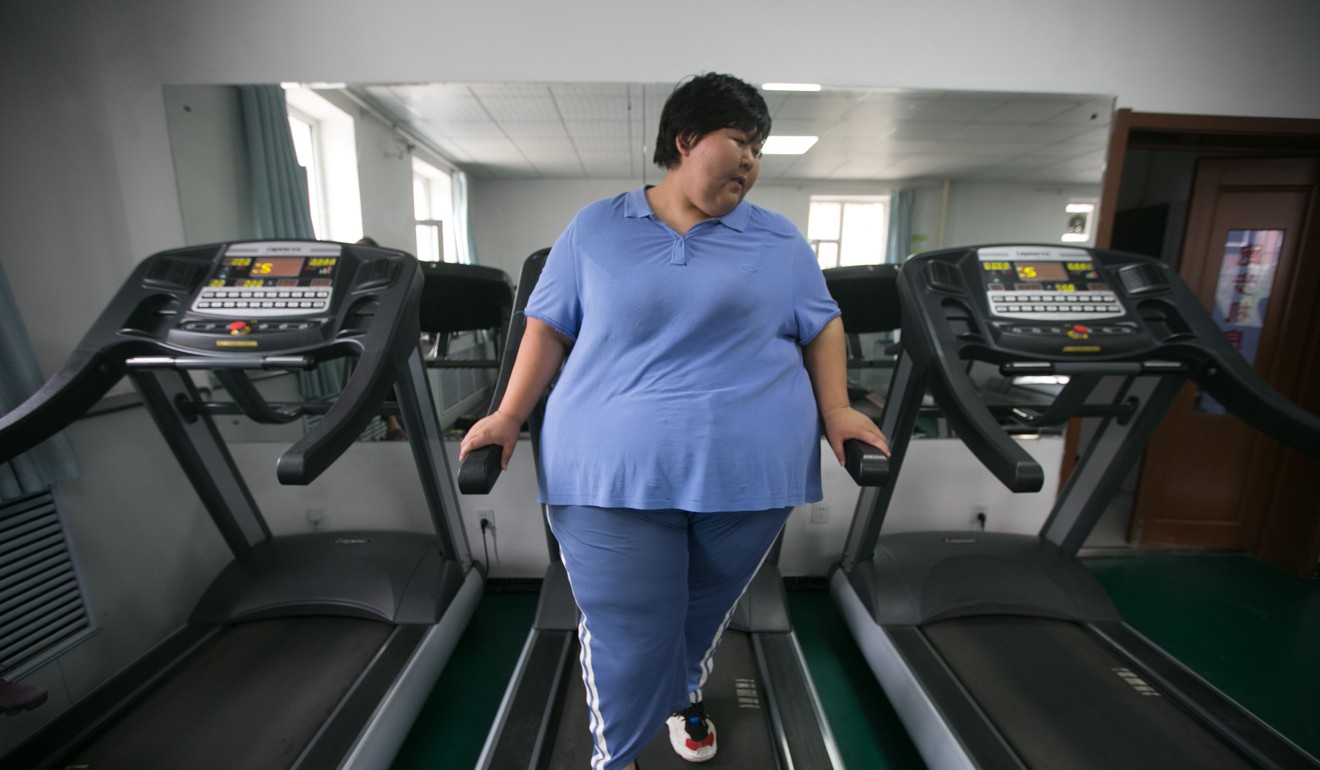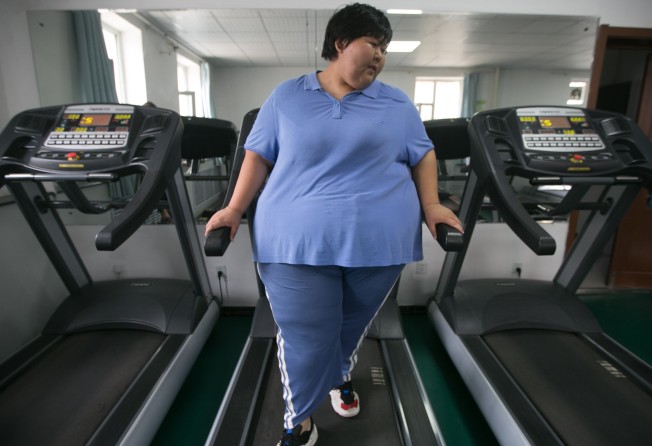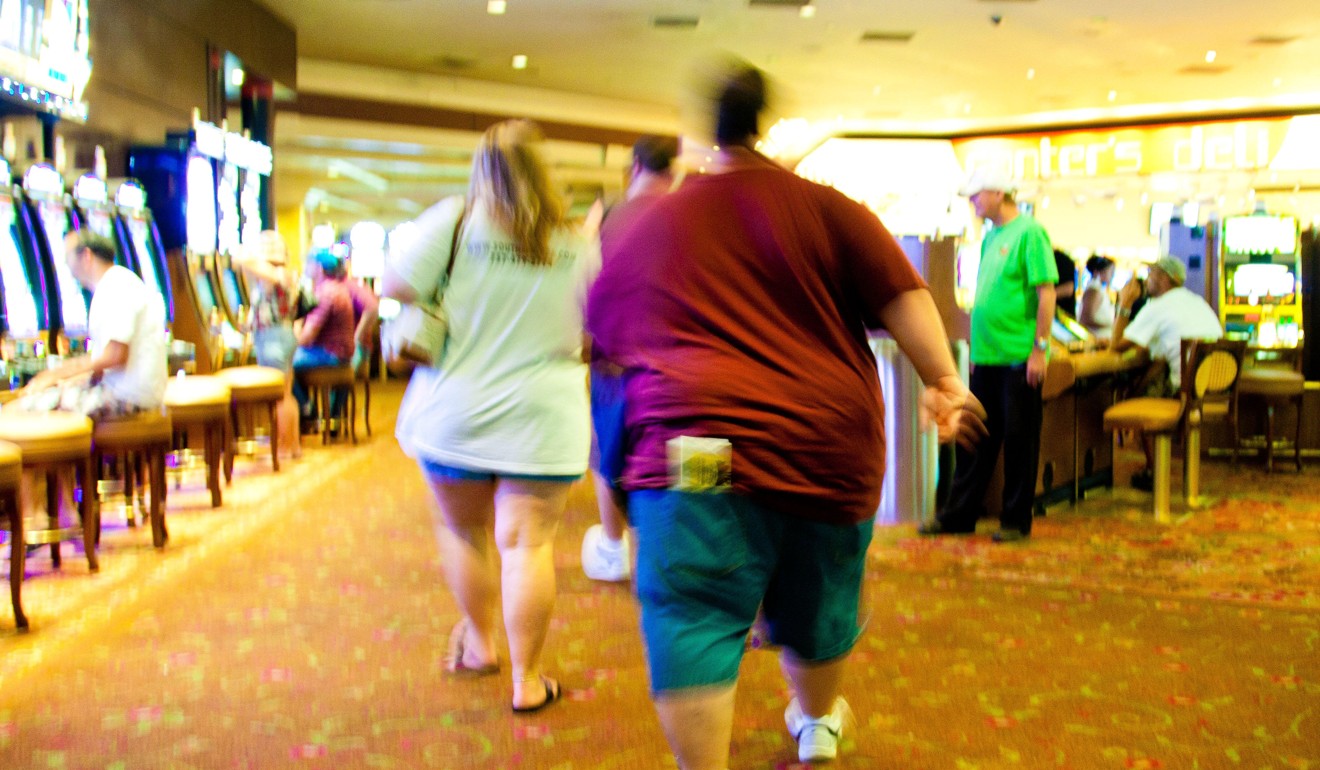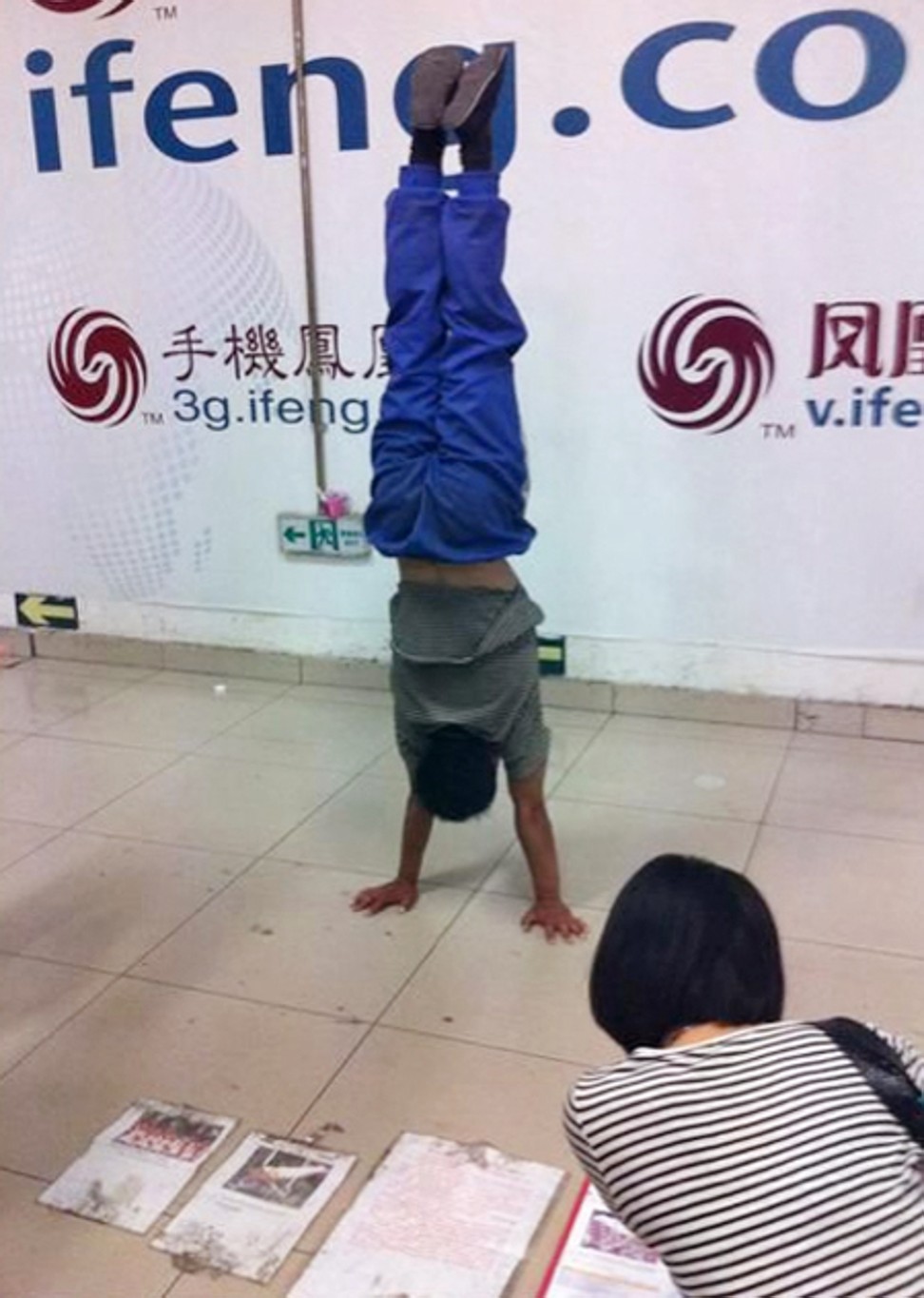
Battle of the bulge: a Chinese former judo fighter seeks to shed 50kg after her weight ballooned to 200kg
‘People were taking out their phones and taking a photo of me when I was walking,’ said Guo Chengyan, the latest Chinese athlete to struggle after retirement

Staying fit once was as natural for Guo Chengyan as beating opponents in a competitive judo match.
Sports was in her family’s DNA: her parents and grandfather all had worked in the sports sector in her hometown of Fushun in northeast China’s Liaoning province, paving the way for Guo to play competitive games such as basketball and to lift weights, as a child.
By age seven, she had begun to focus on judo, and within 10 years had reached the peak of her judo career – finishing third in the 2008 provincial tryouts in the 78kg weight class for the national judo championship.
But by the next year, at age 18, she was forced to retire from competition, as injuries took their toll. “It was just too hard,” she said in an interview. “I often got injured on my legs, feet and [upper body] … sometimes I felt my feet were falling off my body.”
Freed from the pressure of having to stay fit for competition, “I exercised much, much less than before, I’d say by 80 per cent,” she said.

Over the following nine years she “stayed at home” and her weight doubled: going from her fighting heft of just over 100kg (220 pounds) to nearly 200kg.
“People were taking out their mobile phones and taking a photo of me when I was walking in the street,” she said. “They [would] point at me in shopping malls.”
Determined to reverse her profound surge into obesity, Guo is now on a weight loss programme in a hospital in Changchun, Jilin province, where she aims to drop 50kg and ultimately weigh between 65kg and 70kg.
Thanks to the programme, which combines traditional Chinese therapy twice a day with a prescribed diet and regular exercise, she has lost nearly 30kg since it started on July 4.
Although she had never before used a systematic weight loss programme, Guo said she needed to take the drastic step to shed the extra girth that had not only threatened her physical health but damaged her self-confidence.
“Because I look bad, I’ve always had a sense of inferiority,” she said.
While on her track as a judo athlete, Guo had attended a sports-focused high school, today known as Guangzhou Vocational Institute of Sport, in the southern province of Guangdong. A typical day at the school, northwest of Hong Kong, would consist of morning classes in Chinese, maths and English, and an afternoon of judo training.
Her education background also included about a year of veterinary medicine studies at a Fushun vocational school.
After completing those studies, she tried launching her own pet store but the business failed because of her lack of experience, she said.
But self-conscious about her appearance, she never thought about trying to work for others.
“I never dared to look for a job,” she said.
Guo is just one of many former athletes on the mainland who have struggled to find new paths after retirement.
After dedicating most of their time to training from an early age, their lack of education and skills often leaves them at a disadvantage in the job market once their competitive days are over.
The mainland’s system of producing top athletes was put in the spotlight when Zhang Shangwu, a former world champion gymnast, was reported to be begging in Beijing’s subway stations in 2011 after his release from a four-year jail term for theft. He was just 28 at the time.
Other examples included marathon runner Guo Ping, who won a silver medal at an international marathon in Japan in 1998 but later suffered a serious deformity on her feet because of unorthodox training methods. She was featured in mainland newspapers many times over the past decade as her illness kept her from finding work and brought her into financial difficulty.
In a directive to encourage grass-roots sports engagement in 2014, the Chinese government vowed to support retired athletes to help them start new careers.
In response, some local governments started organising job fairs specifically for retired athletes and a number of NGOs launched career training programmes for sports men and women.
Nearly 200 ex-athletes applied for more than 300 job openings at a recent job fair in the southwestern province of Sichuan, jointly held by the provincial government, related organisations and companies, official media reported.
But such events have been of little help to Guo, whose job prospects are tied to a sport that receives relatively little public attention in China, and who has been unable to attend job interviews because of low self-esteem.

She said she felt she could not advance personally or professionally until she managed to return to a healthy weight, partly because of the stigma attached to being a woman with a weight issue.
Her condition had brought her more pain than help over the years, she said.
“Taxi drivers would refuse to take me and there is much inconvenience when I need to take a shower in a public bathroom,” she explained. “I was not the slim type when I was little, but I haven’t been overly fat [until recently].”
Trying to cut her food intake and lose weight, she said she avoided eating all the food the hospital served her.
“It was too difficult for me to jog for a long time on a running machine, so I think I should make up for it by eating as little as I can,” she said. A doctor who is monitoring her blood sugar level has seen no harmful effects from this potentially risky step so far, she said.
Finding work after she achieved her weight loss goal would help her rebuild her self-respect, Guo said.
“It’s good enough to have a job,” she said. “Any job will help change me.”
